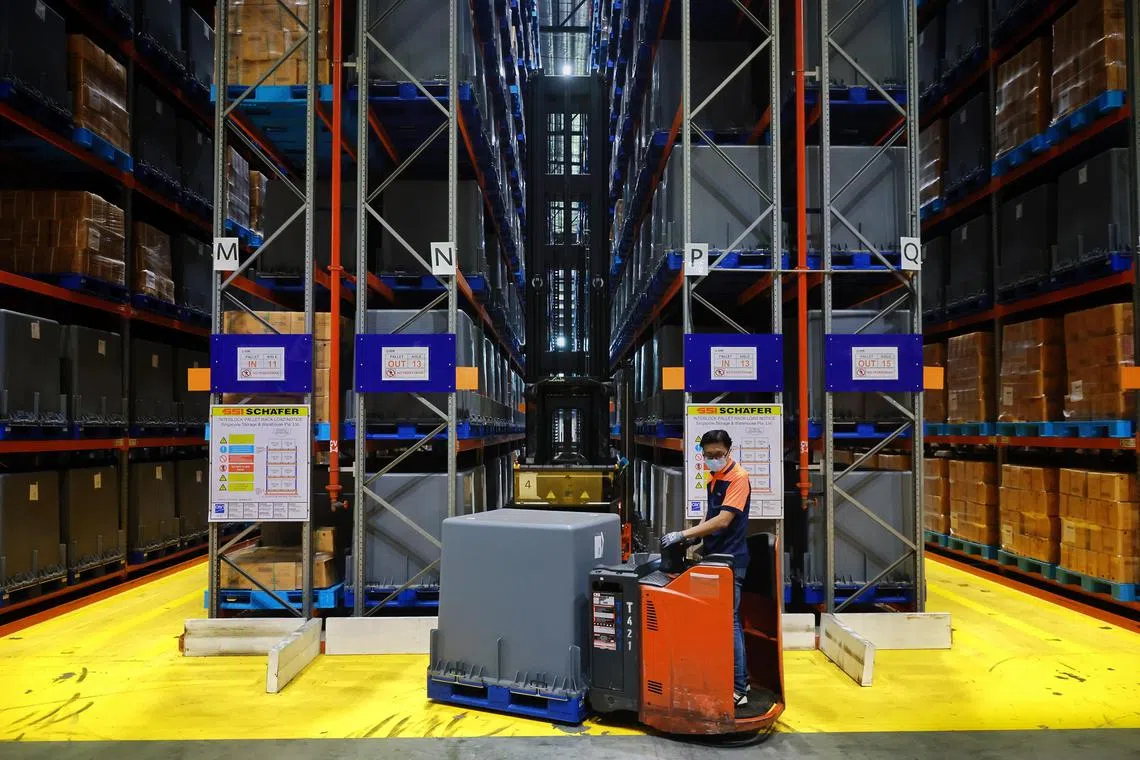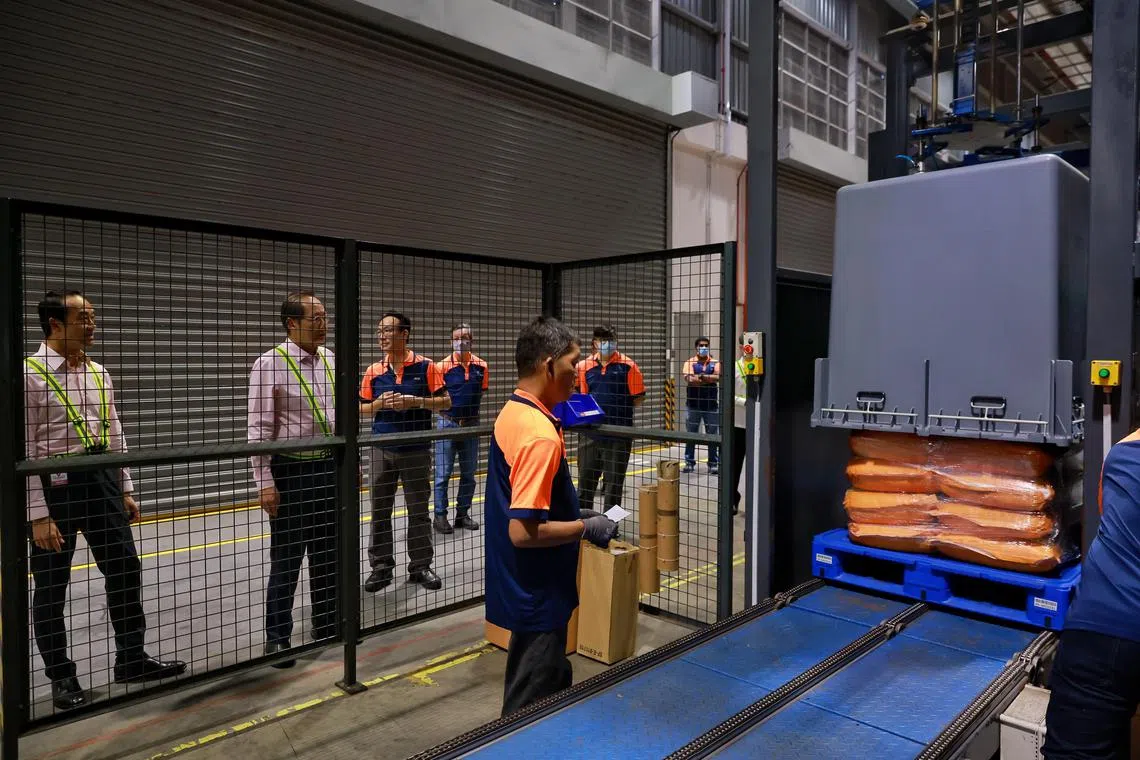Rice storage contractor uses own patented tech to defend against infestation
Sign up now: Get ST's newsletters delivered to your inbox

A Singapore Storage & Warehouse worker at the company's Pasir Panjang facility transporting a pallet of rice sacks encased in a Modified Atmosphere Packaging box.
ST PHOTO: JASON QUAH
SINGAPORE - Singapore Storage & Warehouse, one of the main rice stockpile contractors here, said on Wednesday that it is aiming to ramp up use of its patented technology to prevent infestations of insects such as weevils.
The company does not use traditional methyl bromide fumigation at its Pasir Panjang warehouse, but instead relies on technology it has developed locally in the last three years to control the atmospheric composition surrounding the rice that it stores.
The process is reminiscent of that for retail food packaging. With the Modified Atmosphere Packaging (MAP) box technology – which was first deployed in 2019 and subsequently fine-tuned – rice bags are placed on a pallet and covered with customised casing to form an enclosed box.
Oxygen is then extracted from the box while inert gas is concurrently pumped in, to keep the oxygen levels low. Pests such as adult weevils cannot survive in these conditions.
Each box can store about half a tonne of rice.
Over half of the more than 20,000 pallets in the company’s rice storage warehouse are now enclosed in MAP boxes.
Singapore Storage & Warehouse chief executive Ong Swee Keong said during a tour of the facility on Wednesday that if the integrity of the air mixture in the MAP box is not compromised, the rice can be stored for up to a year.
Previously, rice sacks had to be fumigated every five weeks, as a weevil’s life cycle is four to five weeks long.
Mr Ong added that the company was ramping up its use of the boxes and hoped to implement MAP technology for all its pallets in the next six months.
Said Senior Minister of State for Sustainability and the Environment Koh Poh Koon, during a tour of the facility: “Any form of technology that helps us to store the food more safely and keep it fresh longer will be useful for us to enhance our capacity to have stores with more rice.”
“The Covid-19 crisis has heightened everyone’s awareness that food security and food resilience is always something top of mind, so this local innovation will give us options,” added Dr Koh, who is also Senior Minister of State for Manpower.
“We don’t necessarily have to store more, because we do have enough now, but the option is there for us to use and a good technology like this will open up possibilities.”
Dr Koh added that the Singapore Food Agency (SFA) supports the use of alternative storage solutions such as MAP, which can enhance food safety as well.
He said: “Rice sold in Singapore is safe for consumption, but with the use of methyl bromide fumigation, some degree of bromide residue is to be expected.

Senior Minister of State for Sustainability and the Environment and Manpower Koh Poh Koon (left) and Minister for Manpower Tan See Leng viewing the process of covering a pallet of rice sacks in a Modified Atmosphere Packaging box.
ST PHOTO: JASON QUAH
“While SFA from time to time has detected some of this bromide residue in the rice stock at ambient temperature... there have been no severe cases of impact on health that have been detected in Singapore.”
Dr Koh noted the importance of minimising the use of methyl bromide as a practice in the industry, to further enhance Singapore’s food safety.
“With the adoption of MAP and other alternative solutions that minimise or avoid the use of methyl bromide fumigation, this will go further in helping us to strengthen our food safety here in Singapore,” he said.



